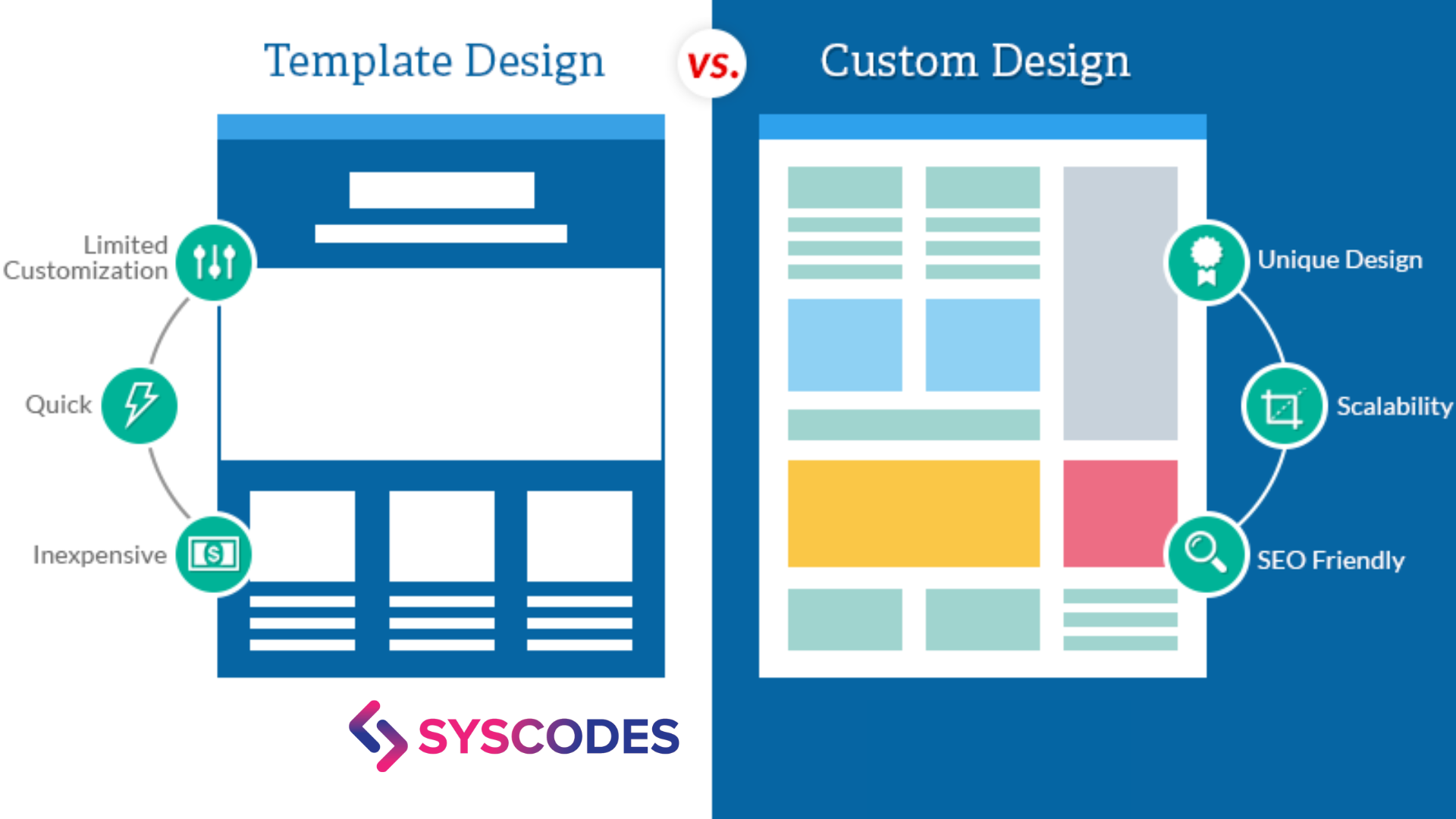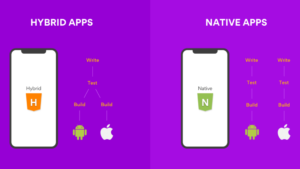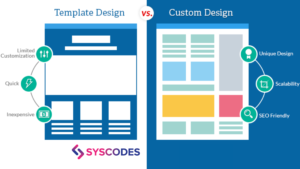Website design is a crucial aspect of creating a successful online presence for businesses and individuals alike. As the demand for visually appealing and user-friendly websites grows, developers face the decision of adopting pre-designed themes/templates or opting for custom development. In this blog, we’ll explore the differences, advantages, and limitations of both approaches to help you make an informed decision when embarking on your website design journey.
Theme/Template-Based Development
What are Themes/Templates?
Themes and templates are pre-designed layouts that developers can use as a foundation for creating websites. They are usually built for specific platforms or Content Management Systems (CMS) like WordPress, Joomla, Shopify, etc. These pre-packaged designs come with predefined structures, styles, and functionalities, making it easier to create a website without starting from scratch.
Advantages of Theme/Template-Based Development
1. Time-Efficient: Using pre-designed themes/templates significantly speeds up the website development process. Developers can focus on content customization and minor adjustments instead of building everything from scratch.
2. Cost-Effective: Themes/templates are often more affordable than custom development since they are designed to be sold to multiple users. They can save costs on design and development, making them suitable for budget-conscious projects.
3. User-Friendly: Most themes/templates come with user-friendly interfaces, making it easier for non-technical users to customize their websites without extensive coding knowledge.
4. Wide Variety: There is an extensive marketplace for themes/templates, offering a wide range of designs catering to various industries, niches, and styles. This allows you to find a design that closely aligns with your vision and requirements.
Limitations of Theme/Template-Based Development
1. Lack of Uniqueness: Since themes/templates are widely available, there is a risk of your website looking similar to other sites using the same theme/template, potentially diluting your brand identity.
2. Limited Customization: While themes/templates provide some level of customization, there might be limitations on how much you can modify the design or layout to match your specific needs.
3. Bloated Code: Some themes/templates might contain unnecessary code and features, leading to slower loading times and possible conflicts with plugins or other customizations.
Custom Development
What is Custom Development?
Custom development involves building a website from the ground up, tailoring every aspect to meet specific requirements and goals. This approach allows for complete creative freedom and ensures a unique web presence that reflects the brand’s identity.
Advantages of Custom Development
1. Uniqueness and Brand Identity: Custom development allows you to create a website that stands out from competitors and aligns perfectly with your brand identity and vision.
2. Flexibility: With custom development, you have full control over the features, functionalities, and design elements of your website, making it easier to adapt and scale as your business grows.
3. Optimal Performance: Custom-developed websites can be optimized for speed and performance since there is no unnecessary code or features to slow them down.
4. Enhanced Security: By avoiding the use of third-party themes/templates, you reduce the risk of security vulnerabilities inherent in pre-packaged solutions.
Limitations of Custom Development
1. Time-Consuming: Custom development takes longer to complete compared to using pre-designed themes/templates. The process involves detailed planning, design, and coding, which may increase the overall development timeline.
2. Higher Costs: Custom development often requires a more significant financial investment since it involves more specialized skills and a longer development cycle.
3. Technical Expertise Required: Custom development demands a team of skilled developers and designers capable of building and implementing complex functionalities.
Conclusion
Both theme/template-based development and custom development have their unique merits and drawbacks. The decision on which approach to choose ultimately depends on your specific needs, budget, timeline, and desired level of customization. For small-scale projects with limited budgets and time constraints, themes/templates can be a practical choice. On the other hand, custom development is the preferred option for businesses seeking a distinct online presence, tailored functionalities, and seamless scalability. Whichever path you choose, remember that a well-designed and functional website is an essential asset in today’s digital landscape.





